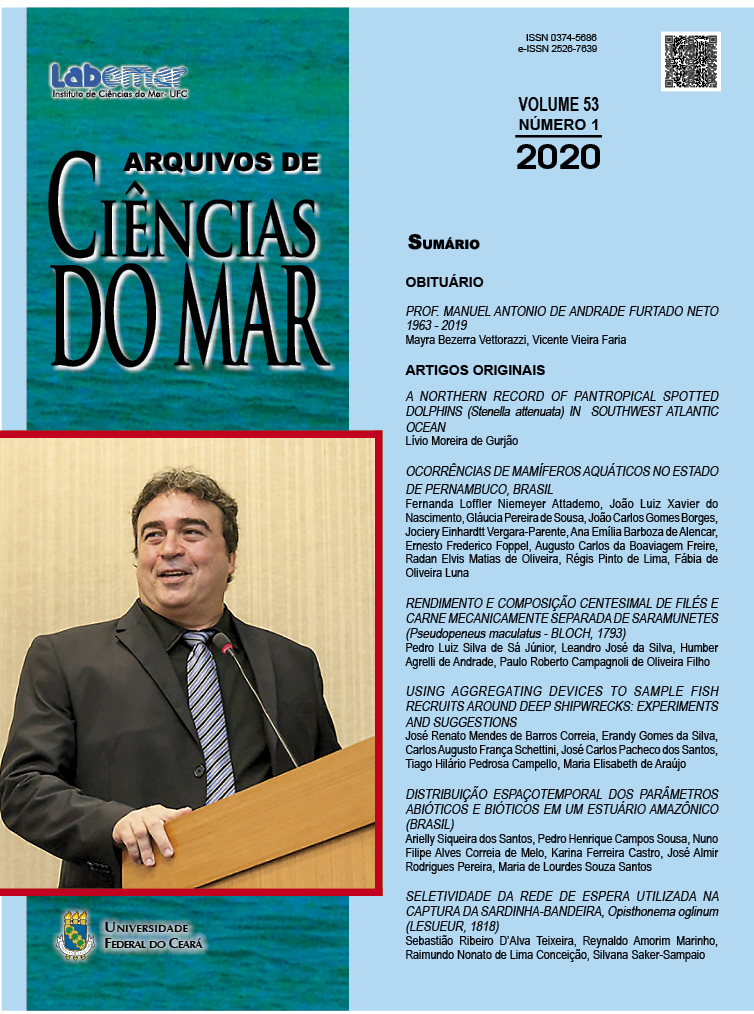Study on the presence of imposex in the gastropode Stramonita brasiliensis (Claremont; DG Reid, 2011) in the city of Acaraú and Itarema, west coast of Ceará, Brazil
DOI:
https://doi.org/10.32360/acmar.v53i1.43641Abstract
Organic tin compounds, such as TBT, have been widely used worldwide for many years as an active component in anti-fouling paints for boats. Due to its toxicity to marine organisms, the use of these paints was prohibited in 2008. Among the alterations caused by TBT in the biota, imposex stands out and is characterized by the appearance of male sexual structures in females. The species Stramonita brasiliensis is sensitive to this compound and has been used as a biomarker. The present study was carried out in two estuarine areas, one in a port area and one in a non-port area, both on the west coast of Ceará, Brazil. The indexes used to quantify imposex were the percentage of females affected by imposex at each site (%); relative penis length index (RPLI); relative penis size index (RPSI); and deferens vas development index (CDSI). Organisms with imposex were only observed in the port area, with 82.2% incidence and indexes of RPSI = 0.67, RPLI = 18.8, and VDSI that varied from 0 to III. Hence, it is evident that despite the prohibition on the sale of TBT-based paints, imposex is registered in Stramonita brasiliensis in Itarema, Ceará, spatially expanding the national limits currently known for this problem.
Downloads
Published
Issue
Section
License
1. Proposta de Política para Periódicos de Acesso Livre
Autores que publicam nesta revista concordam com os seguintes termos:
- Autores mantém os direitos autorais e concedem à revista o direito de primeira publicação, com o trabalho simultaneamente licenciado sob a Licença Creative Commons Attribution que permite o compartilhamento do trabalho com reconhecimento da autoria e publicação inicial nesta revista.
- Autores têm autorização para assumir contratos adicionais separadamente, para distribuição não-exclusiva da versão do trabalho publicada nesta revista (ex.: publicar em repositório institucional ou como capítulo de livro), com reconhecimento de autoria e publicação inicial nesta revista.
- Autores têm permissão e são estimulados a publicar e distribuir seu trabalho online (ex.: em repositórios institucionais ou na sua página pessoal) a qualquer ponto antes ou durante o processo editorial, já que isso pode gerar alterações produtivas, bem como aumentar o impacto e a citação do trabalho publicado (Veja O Efeito do Acesso Livre).

